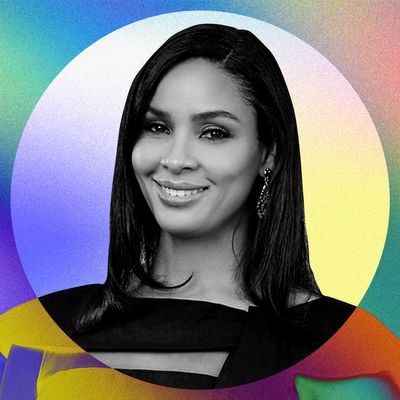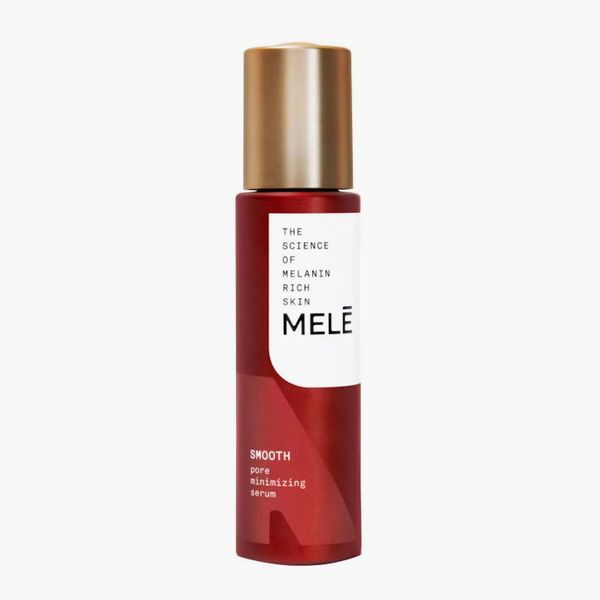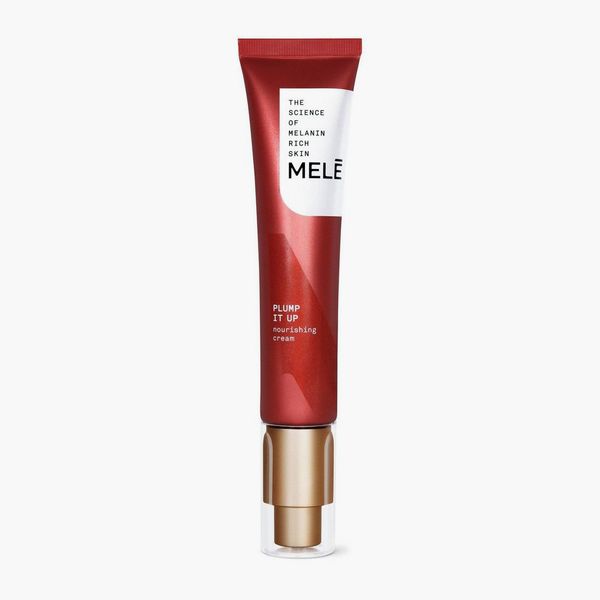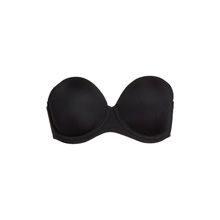
If you were to survey the assortment of serums, cleansers, and cosmetics you’ve collected over the years, there’s a good chance Sarah Irby helped those gems make their way into your daily routines. The beauty-industry pioneer and marketing whiz has launched over 100 new beauty products while holding titles at the world’s leading cosmetics companies, including L’Oréal, Coty, the Estée Lauder Companies, and Unilever, where Irby is currently a leader and brand director with a focus on face care. With 20-plus years of experience developing new products and dreaming up the campaigns to support them, Irby recently co-founded MELÉ, a skin-care line specifically designed to nourish, enhance, and protect melanin-rich skin, in concert with a collective of dermatologists of color. The Cut talked to Irby about using essences, knowing your brand, and bathing in public.
Do you think of beauty as self-care?
Absolutely, especially in the realm of skin care — both facial skin care and body skin care, and even hair care. The term self-care can be defined very broadly these days: Reading a book is self-care, meditating is self-care, going for a walk is self-care, making sure to exercise is self-care. I think it’s anything that falls in the realm of simply taking that time out to focus on yourself and allow yourself the opportunity to go inward, but the more physical aspects of self-care are also important. Simply making sure that you’re nourishing your skin and treating it with all the best that we have to offer today in the beauty industry is absolutely a part of self-care.
Has the way you think about beauty changed during the pandemic?
Ever since COVID hit, I forgot about the blowouts and all that. The hair’s just pulled back a lot, but it’s almost made me realize how much our hair can actually make a difference on Zoom. Now I always notice when someone takes the time to do a little blow out or try a new bang look. I’ve also gone into overdrive on skin care; it’s taken on a whole new importance. When we do all these Zoom calls and Teams calls, I really do feel like the camera can pick up when your skin is glowing. When you don’t take the time to really do your skin care, I think it shows — and the days of a full face of makeup are kind of on pause right now — so I think it’s really important to invest that time into your skin-care regimen. I’m in love with essences right now, the step before serums. Essences came to us from Asia first; we are more toners and astringents, which constrict the skin, but essences are the opposite. Imagine trying to wipe up water with a dry sponge. Often it’s harder to absorb liquids; you can pick up so much more with a damp sponge. So the essence sort of makes your skin like that wet sponge, ready to receive and absorb anything else that you layer on more deeply than if you didn’t have the essence.
I also now see the importance of movement and daily exercise, if you can —I don’t. [Laughs.] But there was a period of time there where I was working out every day, doing YouTube exercises in my living room, or getting out for a walk around the reservoir just to get moving. I think that’s also feeding our beauty from within. I think a lot of what’s changed around beauty is it’s more about having that inner glow that comes with feeling good and having that overall wellness shining through.
What do you wish more people understood about what you do?
It’s so hard to explain marketing in just a few words. I feel like the closest comparison I ever got was on a business trip, sitting next to somebody in the airport. They were in sales, I was in marketing, and we were comparing the two. I had this aha moment because he was saying sales is all about one person trying to convince another person to make a decision about whatever they’re offering that could lead to thousands or millions of dollars. It’s about that one-to-one connection and turning that into a “yes,” whereas marketing is about a marketer really trying to connect with a whole audience of people. A salesperson may have to reach out to Jim, and, Sue, and Kenya one-on-one to make that sale; marketers have to reach out to defined consumer segments, defined audiences of people, that they want to convince that this product or service that they have is right for them. You can’t even say a day in the life, or a week in a life; it has to be a month in the life of a marketer. We do so many things — working with people to design packaging, coming up with media campaigns, working with the media agency to find the right channels to reach the target audience, all the P&L [profit & loss], driving top line while we’re maximizing bottom line. But ultimately, it’s about having a product or service that can help improve upon someone’s life and coming from a very authentic place that really does something for them.
In a more personal sense, I wish people knew that all of the passion and dedication and energy and conviction that I have is really full of the best intentions of driving our business. What I have found over the years, especially as I’ve gotten higher up in my career and worked with so many different people, is some people can perceive that passion and drive as kind of scary and intimidating. But other people who work very closely with me over time know that I have the absolute biggest heart and that all comes from this place of passion and enthusiasm and drive for what we do.
What was the biggest “no” you heard in your career, and what did you learn from it?
It was a time when I was working on a certain brand at another company. I felt, and we knew, it was getting dated and out of touch. Its consumer base was aging and we were trying to figure out how to make the brand relevant for today, tomorrow, and forever. There are certain brands out there, especially in the luxury realm, that have been around since the early 1900s, that are timeless, eternally relevant, and aspirational. This brand was definitely aspirational but feeling a little less eternal, and I remember this was around the year 2007 or 2008, when “natural,” “green,” and sustainability in beauty were just burgeoning. I said we should really be becoming more sustainable, we should really be thinking about having more natural ingredients, and we should really be thinking about all these things that are important to millennials; that’s how we can really make this brand be here tomorrow.
The executive vice-president or senior vice-president of marketing was like, “You obviously don’t know where you work. This brand is all about certain codes and luxury cues,” and they had nothing to do with sustainability and natural ingredients. That was probably the hardest “no,” because I was earlier in my career, and it was like: I hear you. You’re not wrong, but it’s not going to happen on this brand. I realized that you have to steward the brand, and you cannot ever recommend something that goes against the brand’s core DNA or you risk losing what that brand stands for. If you’re really, really passionate, you either need to go find a brand that aligns with those passions or create your own. Even though I had all the insights, and I was correct that it was something that was important to consumers, you can’t change the DNA of a brand as one person.
Where would you like to see the beauty industry go from here?
It’s hard to think about much else these days aside from social justice and Black Lives Matter. I would just love it if the beauty industry could continue to normalize what is accepted as “beauty” in terms of facial features, hair textures, skin tones, etc. Beauty can really champion that — just as media, TV, and movies shape the minds of America about what is possible, what is expected, what can be, and how we help advance our society beyond stereotypes and dated views of systemic racism [and] putting people in boxes of what they are and aren’t supposed to be. The beauty industry has the power to really establish what beauty is, so I think the more we can continue to normalize all different looks, walks of life, and body shapes and celebrate that beauty and make it aspirational, the industry can really make a change in social justice and advancing how we accept one another as a diverse society.
Fill in the blank: Unfortunately, _______ is worth it.
Guzzling a liter of water, and doing your multi-step skin-care routine each night, no matter how late you stayed up working, going out with friends (during non-pandemic times), or watching something on Netflix. Before I go to bed, I double cleanse then follow that with an essence, a serum, moisturizer, and an eye cream. It’s five steps, but it’s worth it, because when you wake up in the morning, you look an awful lot better than when you don’t take the time to do all the steps. Guzzling the water is also important though. I got a HydroMATE, and I keep it next to my bed.
What, in your opinion, is the best affordable beauty product or products?
We developed some good ones if you happen to be someone with melanin rich skin. We had noticed all along, but around the summer of 2018, Esi [Eggleston-Bracey], my boss, and I called out the lack of brands that really put the skin concerns and solutions for melanin rich skin at the center of the proposition of a skin-care range. Cosmetics has been doing it for literally decades now. There are tons of foundation shades, lip color shades, and eyeshadow shades that go with all the skin tones, but the skin-care industry was treating all skin the same. This kicked off a whole collaborative process with our Unilever scientists and dermatologists of color, and we created a brand called MELÉ, and it’s the science of melanin-rich skin. We have dermatologist insights and co-creations on what they use on their patients of color to address their highest order concerns, whether it’s hyperpigmentation, dark spots, moisture imbalance, or needing proper SPF. We have this incredibly science-based range that has top-notch ingredients at masstige price points — $14 to $24 for cleanser, serums, moisturizers, SPF — and it’s a beautiful range. I think that’s the best deal going right now for anyone with melanin rich skin.
Is eye cream worth it? And which one is your favorite?
Yes, and I keep my favorite on my bedside table. It’s called AHC Essential Eye Cream for Face. It’s by a Korean skin-care brand, and it has all the rich, luxurious, and intensely working ingredients that are made for an eye cream but formulated to be a little more thinned out, so it can go all over your face. In Korea, there was a soap-opera actress who was really, really beautiful. She kind of fell out of public life. I think she went through a divorce, and she just stepped away for a long, long time. But then, when she came back on the scene, she looked more vibrant, and younger, and radiant than ever, and people were like, What has she been doing? She had been using eye cream all over her face. So the AHC brand was inspired by that story and formulated this to be an eye cream that you can use all over your face but at a more affordable price.
What’s the wildest luxury beauty experience you’ve ever had?
I was on business in the Middle East once and I had to go to Dubai and Istanbul. While I was in Istanbul, I went for a Turkish bath at the Ayasofya Hurrem Sultan Hamam, which was built in 1556 and is across from the Blue Mosque. It’s a public bath house, and what they do is lay you on a slab of marble, naked, and they bathe you and wash your hair. It was this huge room, and there were a couple of people working on me, and they have this whole ancient cleansing ritual from head to toe. One of the coolest things was they had this way of flipping around this porous, linen cloth. They would whip it around and would pull it back and forth so the soap would just come out of it. I felt indulgent, vulnerable, and exposed, all at the same time. Right afterward, I just kind of sat on a bench and felt mildly traumatized. [Laughs.] But I will never forget it!





